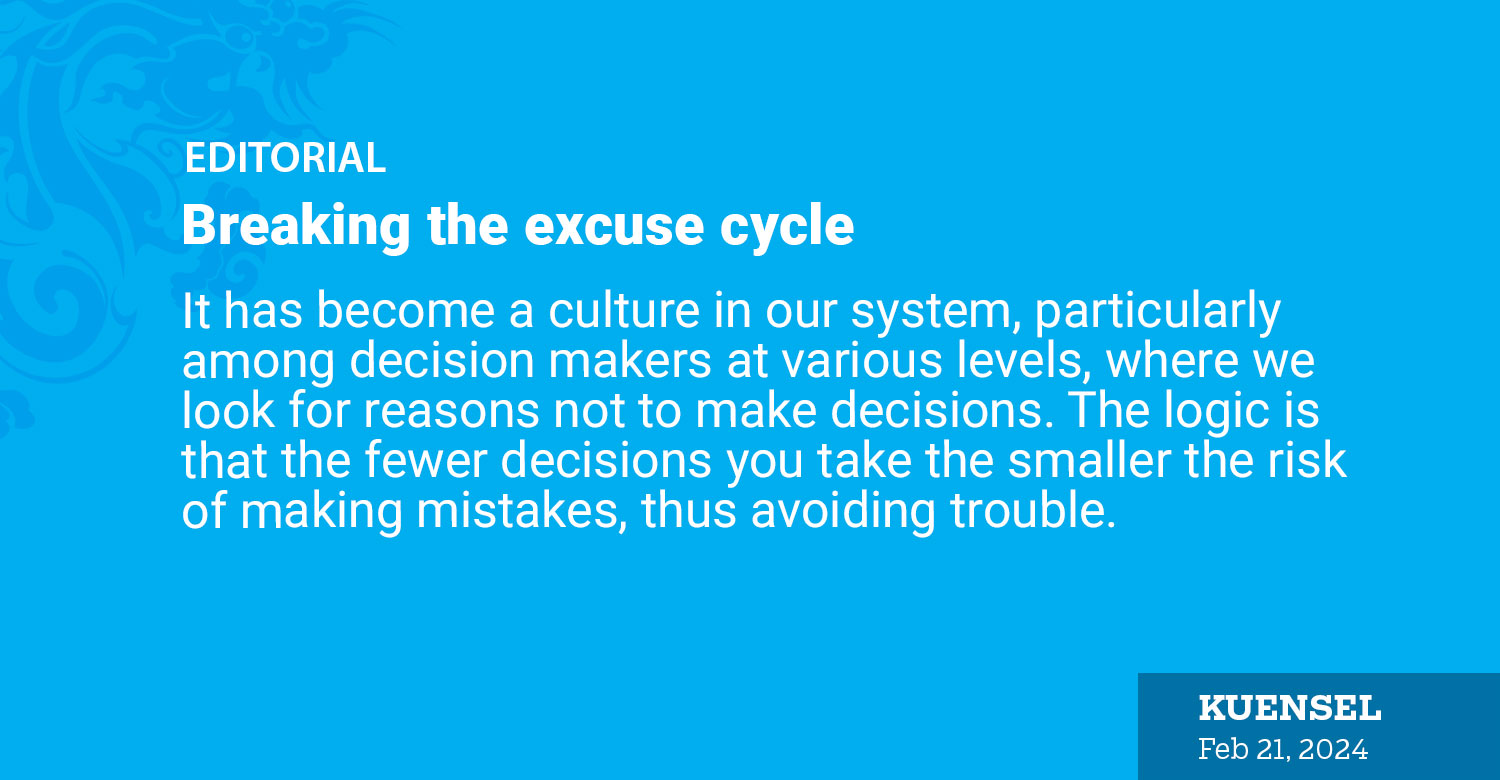It has become a culture in our system, particularly among decision makers at various levels, where we look for reasons not to make decisions. The logic is that the fewer decisions you take the smaller the risk of making mistakes, thus avoiding trouble.
Among these, administrative and financial rules have been the favourite excuses. We sit on important issues on the premise that we are bound by rules. Over the years, some of us have even started believing our own excuses.
At one stage we blamed accountants, auditors, the Anti-Corruption Commission, and the financial manual. Today, we are blaming the pandemic. Tomorrow we will find something else, politicians perhaps?
It might be true that some of the rules might be too convoluted and are often misinterpreted. Sometimes there may be too many rules. “Bureaucracy” became synonymous with “slow” because of the many layers of procedures and rules. Thus, the parties came out making loud promises to improve the efficiency of the system.
With the services going online, many of these layers were supposed to be removed. In reality, however, issues with online systems persist and service seekers are directed from one office to another. Just a few days ago, numerous services were not accessible online because the G2C services were down.
Auditing, anti-corruption activities, and general rules are indispensable. They are important for the functioning as well as the integrity of the system. But they are not meant to be obstacles to work. They are not meant to stop decisions.
Theories about human behaviour emphasise that people’s behaviour, including criminal behaviour, are influenced by their environment. The belief is that people are inherently good but are often misled to wrong behaviour by outside forces. These outside forces include their working environment.
Therefore, the latest management theories emphasise the need to improve our working systems and to update rules. For both, we need to look forward at what needs to be done and not back at what has happened in the past.
To quote a well-known cliché, administrative and financial rules need to be dynamic or become completely redundant. The changing environment calls for changes in rules. We change, or we are left behind.
For example, many of the rules today are dictated by technology. Meetings that took days to organise are now instant through video conferencing. Letters that were carried by the mailman flash from screen to screen. The world is available on the touch of a button.
In the past, people were generally delayed when a decision maker did not make a decision. Today people will probably go ahead, in another direction. And we cannot afford that today. When there is so much to do, there is only one choice. Get on with the job.


